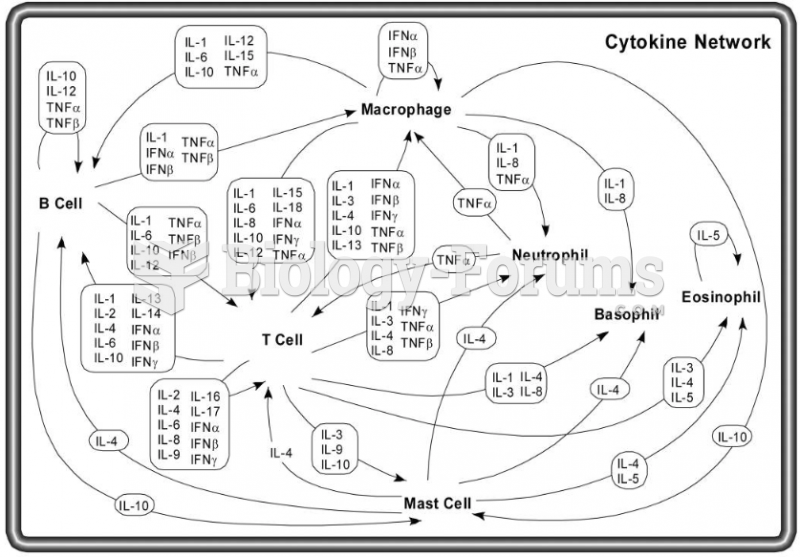|
|
|
The U.S. Pharmacopeia Medication Errors Reporting Program states that approximately 50% of all medication errors involve insulin.
Dogs have been used in studies to detect various cancers in human subjects. They have been trained to sniff breath samples from humans that were collected by having them breathe into special tubes. These people included 55 lung cancer patients, 31 breast cancer patients, and 83 cancer-free patients. The dogs detected 54 of the 55 lung cancer patients as having cancer, detected 28 of the 31 breast cancer patients, and gave only three false-positive results (detecting cancer in people who didn't have it).
When intravenous medications are involved in adverse drug events, their harmful effects may occur more rapidly, and be more severe than errors with oral medications. This is due to the direct administration into the bloodstream.
The human body's pharmacokinetics are quite varied. Our hair holds onto drugs longer than our urine, blood, or saliva. For example, alcohol can be detected in the hair for up to 90 days after it was consumed. The same is true for marijuana, cocaine, ecstasy, heroin, methamphetamine, and nicotine.
Bacteria have flourished on the earth for over three billion years. They were the first life forms on the planet.
 teach their children to care for the earth in hopes of passing on a better world to future generatio
teach their children to care for the earth in hopes of passing on a better world to future generatio
 The gaping hole in the destroyer USS Cole, in the port of Aden, Yemen, was the work of suicide bombe
The gaping hole in the destroyer USS Cole, in the port of Aden, Yemen, was the work of suicide bombe





